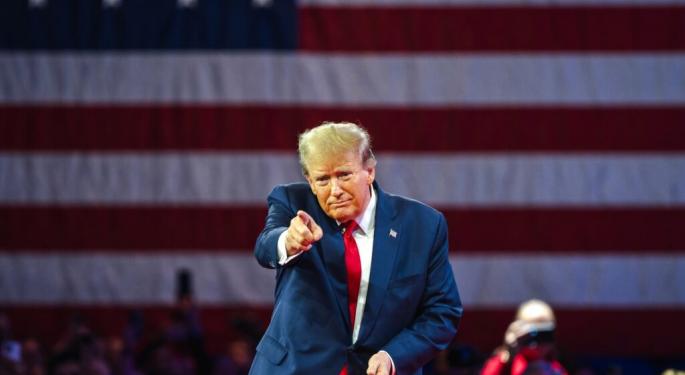Trump Delivers First June Budget Surplus Since 2017, Thanks To Tariffs
The Treasury Department announced on Friday that the U.S. government recorded a surplus of just over $27 billion in June, a turnaround driven in large part by a significant increase in tariff revenues.
The Details: The surplus came after a $316 billion deficit in May and brings the total deficit for the current fiscal year to $1.34 trillion, which is 5% higher than the same period last year, according to CNBC.
However, after adjusting for the calendar, the deficit is actually down by 1%. With three months left in the fiscal year, receipts for June were up 13% from a year ago, while government spending dropped by 7%.
Read Next: UnitedHealth Hits Reset: New Head Of Medicaid Appointed As CEO Reshapes Team
Tariff collections have played a major role, with customs duties hitting $27 billion in June—more than three times what was collected in June 2024—following new tariffs imposed by Trump earlier this year.
For the year, tariff revenues have reached $113 billion, up 86% from last year.
Despite the unexpected surplus, the federal government continues to face challenges from high interest payments on its $36 trillion national debt, which totaled $84 billion in June alone.
Additionally, the recently passed spending bill is expected to add about $3.4 trillion to the national debt over the next decade, according to the Congressional Budget Office.
Why It Matters: Wall Street ended the week on a cautious note, as stocks pulled back on Friday after President Trump indicated a tougher approach to trade policy.
A formal letter detailing new tariff plans is expected to be sent to European Union leaders soon, following Trump's recent announcement of a 35% tariff on Canadian imports beginning Aug. 1 and broad tariffs of 15% to 20% on most other trading partners.
The S&P 500, as tracked by the SPDR S&P 500 ETF (NYSE:SPY), slipped by 0.2% and the Nasdaq Composite, tracked by the Invesco QQQ Trust (NASDAQ:QQQ) was unchanged, both having reached new record highs on Thursday.
The Dow Jones Industrial Average dropped nearly 300 points, weighed down by renewed concerns over a possible escalation in global trade tensions and weak performance in industrial and financial sectors.
Read Next:
Photo: Shutterstock
© 2025 Benzinga.com. Benzinga does not provide investment advice. All rights reserved.
Posted-In: AI GeneratedNews Politics Econ #s



